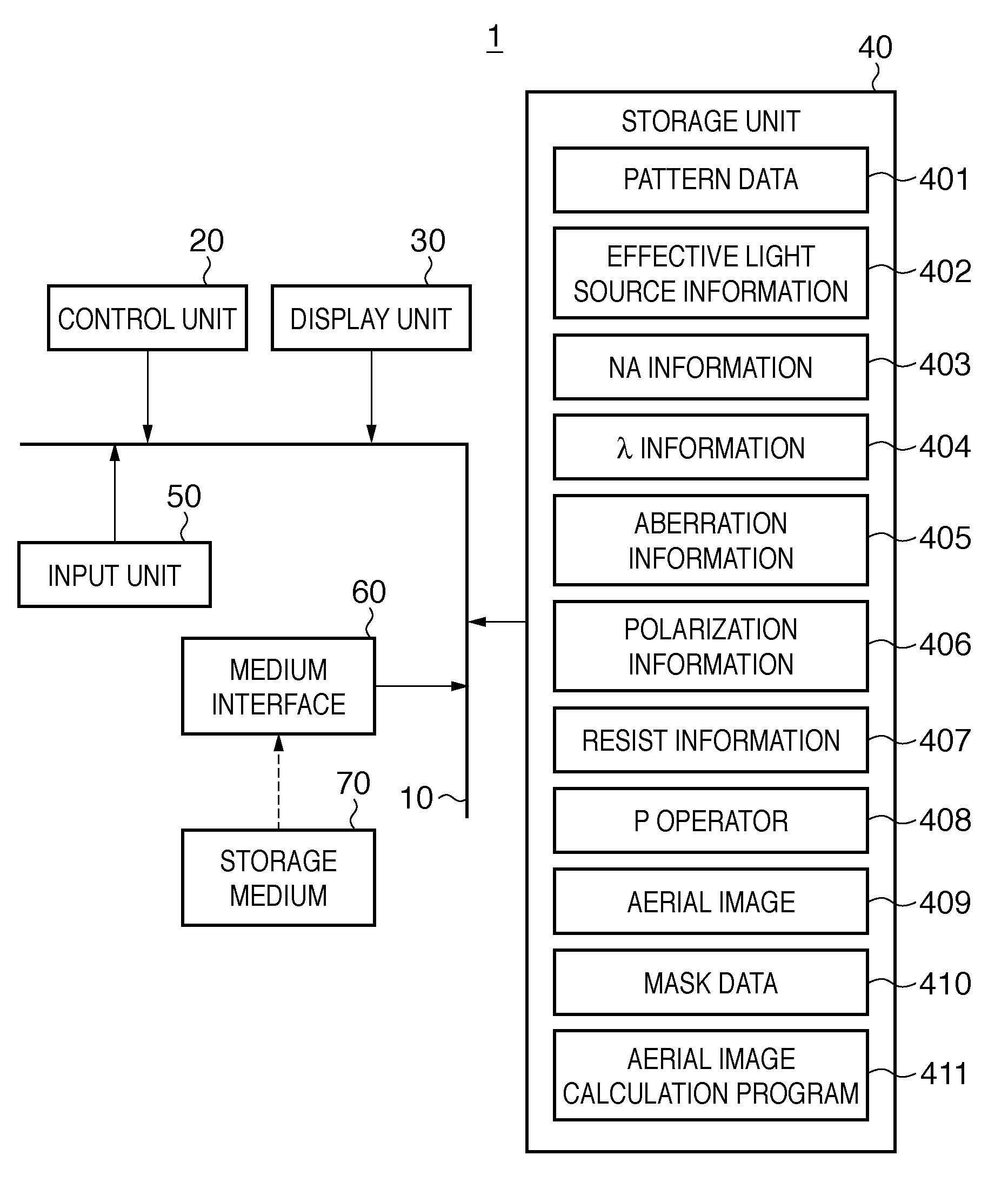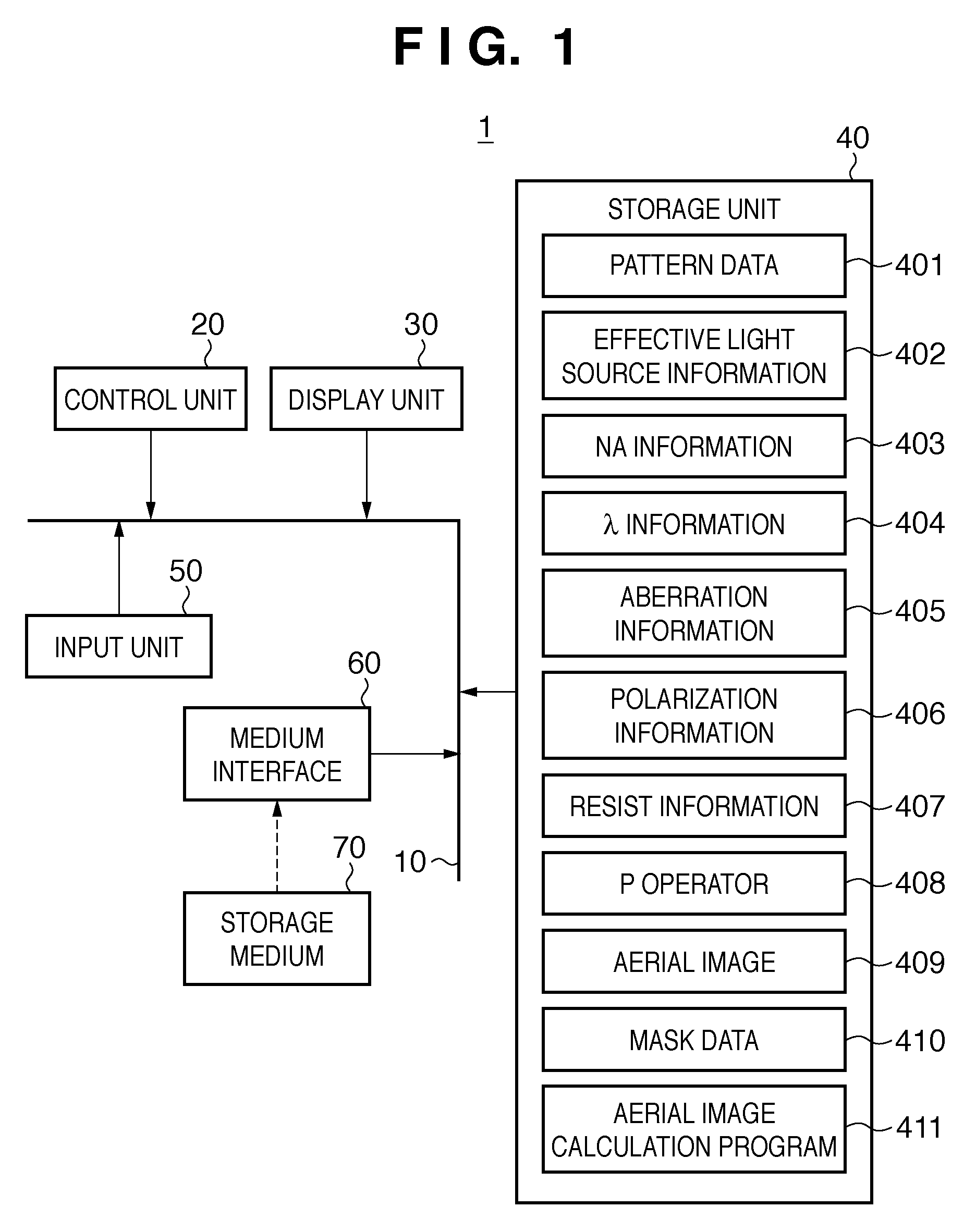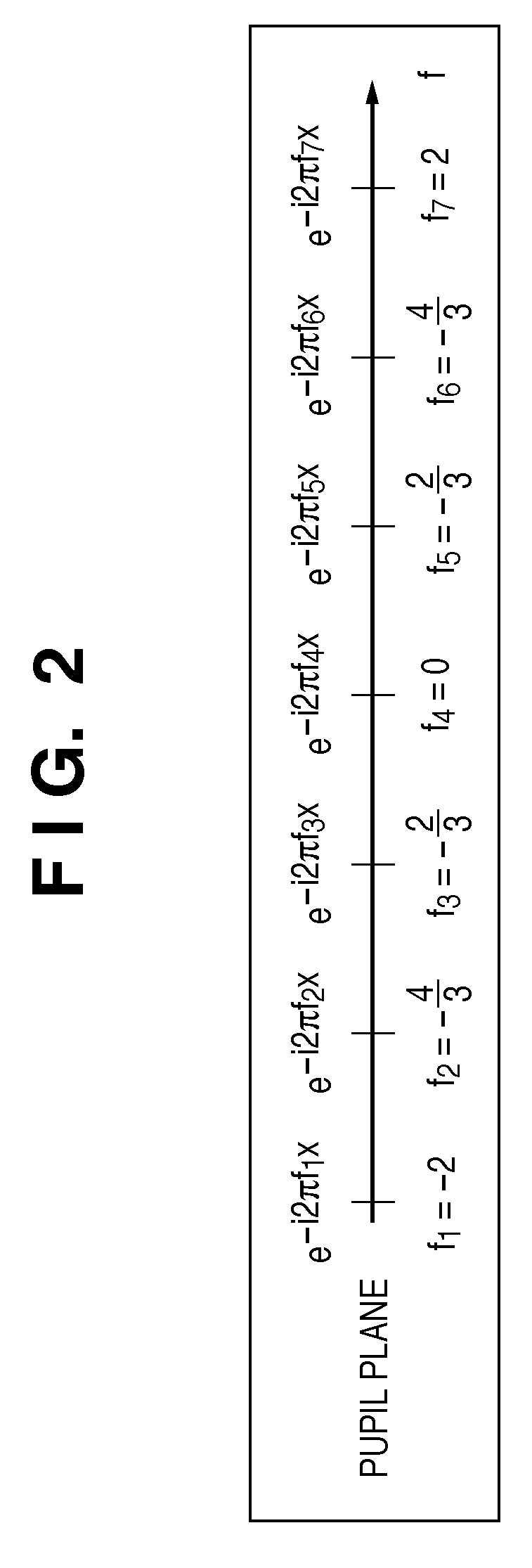Calculation program, and exposure method for calculating light intensity distribution formed on image plane
a light intensity distribution and image plane technology, applied in the field of calculation methods, can solve the problems of requiring a long time and high cost, requiring socs to calculate tcc (transmission cross coefficient) and decompose it into eigenvalues, and achieve the effect of short period of time and short period of tim
- Summary
- Abstract
- Description
- Claims
- Application Information
AI Technical Summary
Benefits of technology
Problems solved by technology
Method used
Image
Examples
first embodiment
[0143]The effect of a process of calculating an aerial image 409 by an aerial image calculation program 411 will be explained in the first embodiment. In the first embodiment, 64-bit Opteron® is used as a CPU which constitutes a control unit 20 of a processing apparatus 1, and a memory of about 10 gigabytes is used as a storage unit 40. The aerial image calculation program 411 is generated using MATLAB®, and the time taken to calculate the aerial image 409 (calculation time) is compared with that in the prior art (SOCS).
[0144]The first embodiment assumes a case in which an exposure apparatus uses a projection optical system having an NA of 0.73 (corresponding to NA information 403), and exposure light having a wavelength of 248 nm (corresponding to λ information 404). In addition, the projection optical system is assumed to have no aberration (corresponding to aberration information 405), the illumination light is assumed to be non-polarized (corresponding to polarization informatio...
second embodiment
[0149]A process of calculating an aerial image 409 when the aberration of the projection optical system is taken into consideration or when the illumination light is polarized will be explained in the second embodiment. A process of calculating an aerial image 409 when the effective light source has a variation in light intensity (the light intensity of the light-emitting part is nonuniform) or when the diffraction efficiency of light diffracted by the mask pattern changes will also be explained in the second embodiment.
[0150]When the aberration of the projection optical system is taken into consideration, it is only necessary to include the aberration in the pupil function and calculate a P operator 408 using equation (27). In this case, each element of the P operator 408 includes a conjugate element corresponding to the aberration of the projection optical system. The aberration of the projection optical system can be included in P′i in equation (27) in this way.
[0151]Pieces of ae...
third embodiment
[0163]The third embodiment will exemplify a case in which a process of calculating an aerial image 409 by an aerial image calculation program 411 is applied to the model-based RET. The OPC (Optical Proximity Correction) is known as a basic approach to the RET.
[0164]Pieces of aerial image calculation information other than mask data 410 are assumed to be the same as in the first embodiment. In the third embodiment, five bars each having a width of 120 nm and a length of 840 nm, as shown in FIG. 7A, are assumed as the mask data 410. FIG. 7B shows an aerial image 409 calculated by the aerial image calculation program 411 in this case. When FIGS. 7A and 7B are compared, the mask data 410 differs from the aerial image 409 calculated by the aerial image calculation program 411. To solve this problem, based on the OPC, the mask data 410 is changed so that the aerial image 409 calculated by the aerial image calculation program 411 (i.e., a pattern transferred by exposure) becomes close to p...
PUM
| Property | Measurement | Unit |
|---|---|---|
| wavelength | aaaaa | aaaaa |
| diameter | aaaaa | aaaaa |
| diameter | aaaaa | aaaaa |
Abstract
Description
Claims
Application Information
 Login to View More
Login to View More - R&D
- Intellectual Property
- Life Sciences
- Materials
- Tech Scout
- Unparalleled Data Quality
- Higher Quality Content
- 60% Fewer Hallucinations
Browse by: Latest US Patents, China's latest patents, Technical Efficacy Thesaurus, Application Domain, Technology Topic, Popular Technical Reports.
© 2025 PatSnap. All rights reserved.Legal|Privacy policy|Modern Slavery Act Transparency Statement|Sitemap|About US| Contact US: help@patsnap.com



